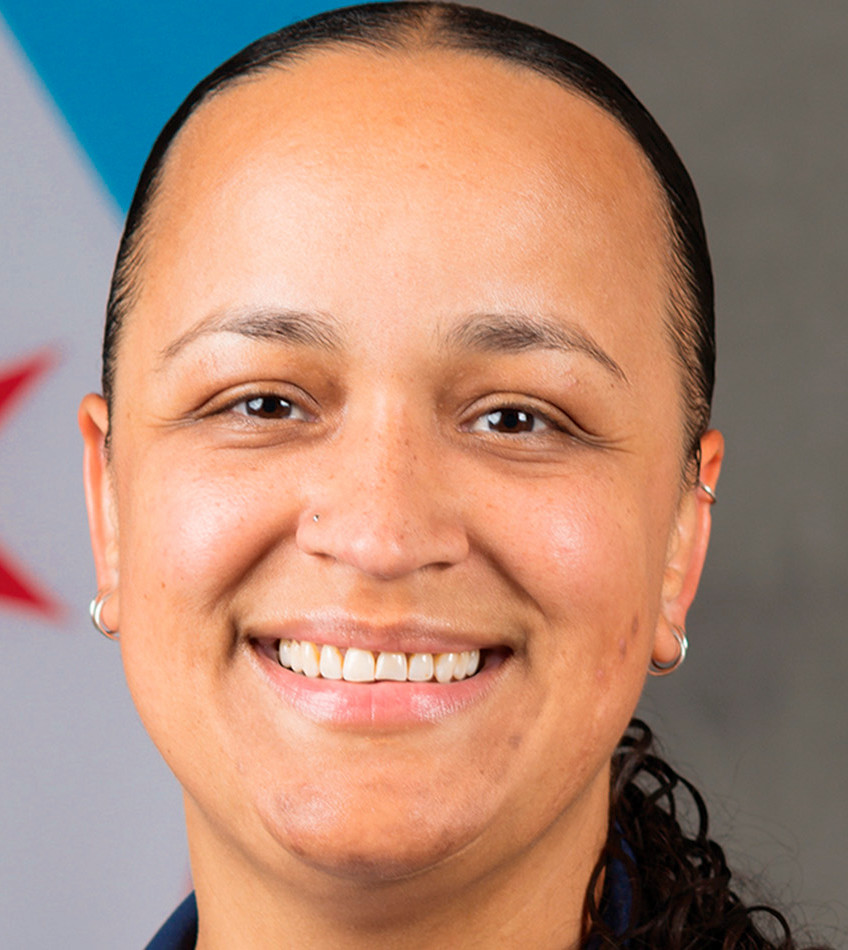Jen Johnson’s Vision for Education
Supporting students in and out of school
If Jennifer Johnson (BS03) had her way, adults would show they care for kids by turning struggling schools into neighborhood hubs. These centers would offer extended academic, health, and social support well beyond the traditional school day. And they’d be led and driven by community members.
It’s not just a vision—the Sustainable Community School Initiative is a key focus of Johnson’s work as Chicago’s deputy mayor for education, youth, and human services.
“I really believe this model is the future of schools,” she says. “It can be challenging to pull off—there’s resistance to sharing power. But if leadership has the right mindset, it can be truly transformational and create the kind of loving, successful school spaces that all our students deserve.”
Johnson, who returned to SESP earlier this year to talk to graduate students, began her career as a teacher at Chicago’s Lincoln Park High School and became a leader in the Chicago Teachers Union (CTU) before her current role. Here’s how she got there.
A family affair
Several of Johnson’s family members are educators, including her father, a pillar of the Grand Rapids, Michigan, community where he taught high school history for 35 years.
“I saw the impact that he made on generations of families in my hometown,” she recalls. “We’d go out and he’d be accosted in beautiful ways at the grocery store. We had a mailbox on our porch where students would turn in homework. I never seriously considered another path.”
At SESP, Johnson advocated for more student-teaching placements in urban districts, which at the time was not a common practice. After graduation, she taught US history and what she calls “Euro- centric world history” at Chicago’s Lincoln Park High School. “Then I fought to teach African American history, which I did for seven years and really loved,” she says.
A union fighter
While at Lincoln Park, Johnson helped form the CTU caucus that elected Karen Lewis as president in 2010. For the next three years, she resisted Lewis’s calls to work for the union; she loved her classroom. But the final nudge came after a colleague and mentor told her it was time to take on something bigger and advocate at a higher level. “It was the combination of Black mentors and friends pushing me out of my comfort zone that helped me make the decision,” Johnson says.
At the CTU, Johnson initially worked on teacher evaluation and helped implement the eighth and tenth grade “Reparations Won” curriculum. The program covers Chicago’s monetary. reparations to victims of torture under former police commander John Burge; Johnson worked with educators on the curriculum, led related professional development sessions, and met many torture survivors. “It was very much a passion project,” she says. “It’s very relevant to this day and to ongoing struggles for justice.”
In 2017, while serving as chief of staff at CTU, she began working on the Sustainable Community School Initiative, a partnership with Chicago Public Schools that provides wraparound academic, health, and social support beyond the traditional school day.
“Often kids in Chicago are demonized,” she says. “We are trying to reverse that as well as prevent the trauma and the trappings that can catch young people up.”
Supporter of youth
As deputy mayor for education, youth, and human services since 2023, Johnson has been able to continue her work from a very different vantage point.
“We have not eradicated the causes of why young people participate in violence,” she says. “We have to double down on that while also seeing their humanity and their needs. That requires us to see the needs of their families as well. By centering young people, we can . . . get to the root causes of many of our city’s challenges.”
